Give students opportunities to have greater autonomy with their own learning.
·Author:Stewart Corbett· ·Translator: Seeker Ding ·
Non-chronological reports

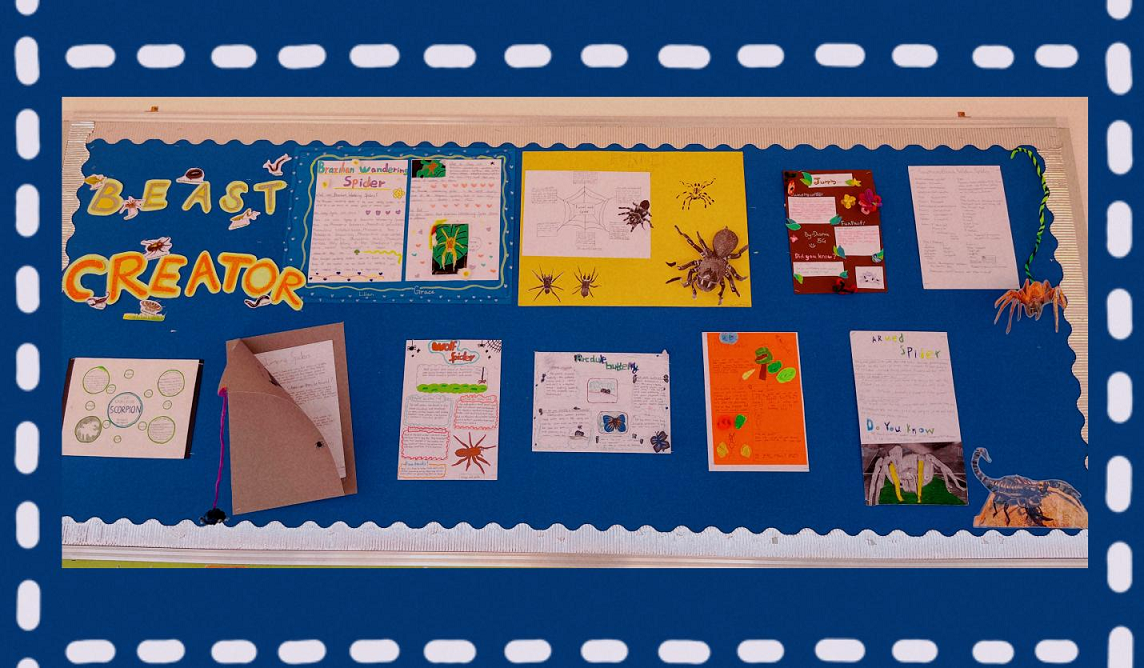
Non-chronological reports are not the most exciting pieces of writing nor do they require an abundance of creativity. However, they do touch on many skills students need as they progress through their academic journeys. Year 5 spent two weeks working on their own non-chronological reports about their favourite mini beast.
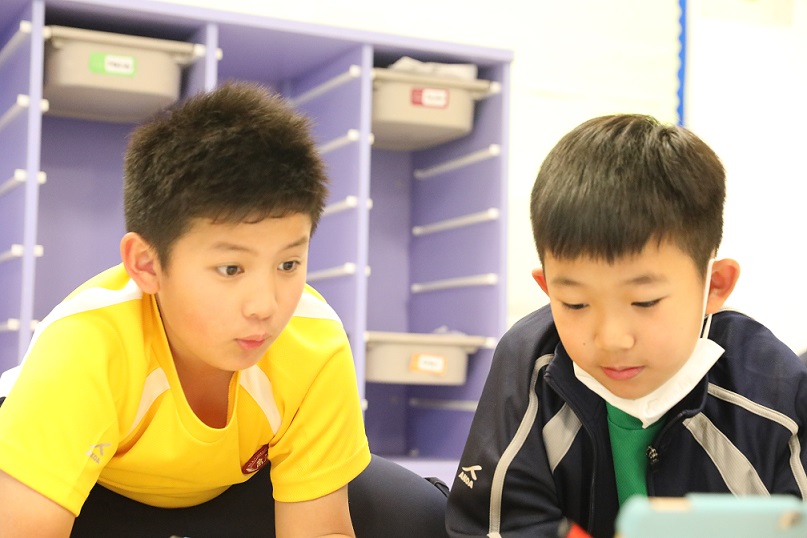
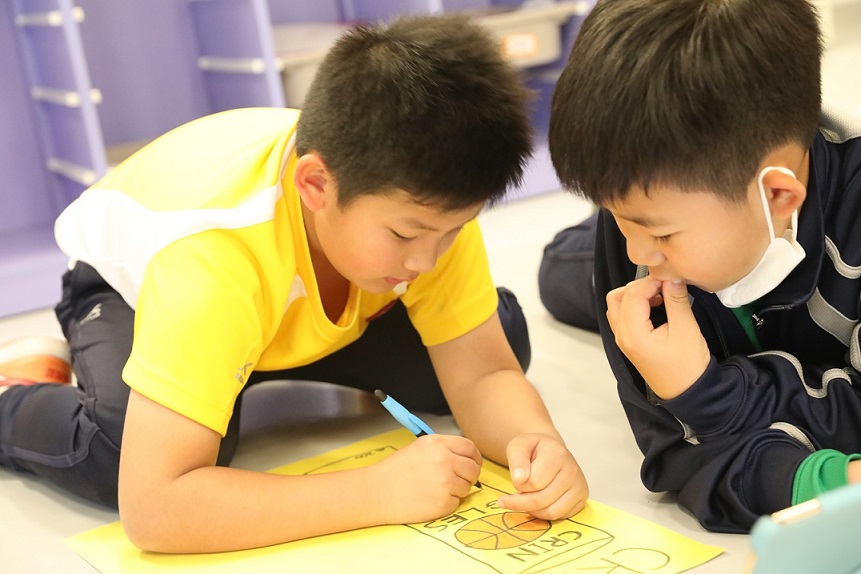
Students began by researching as much information about their mini beast as possible using multiple reliable sources. They then sifted through all that raw data and chose for themselves what they thought was most relevant and interesting. Next, they picked their target readers so that they could narrow down the information even more. Finally, they paraphrased the information into their own words and presented it with a level of effort worthy of a Year 5 student. The ability to choose their own mini beast and what format the final copy will be in helps the students take more pride in their work and be more enthusiastic about learning.


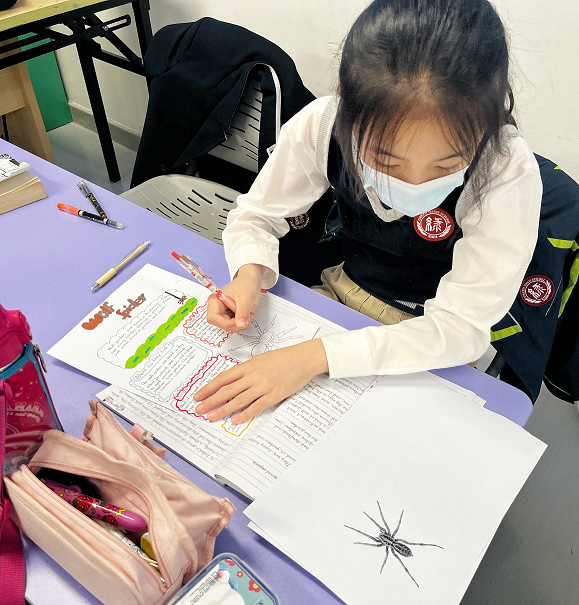
Non-chronological reports are one of many forms of writing that allow students to practice a higher level of thinking and reasoning. They are also a fine way to encourage enquiry-based learning because the students are always asking questions and digging deeper, not only into their own topic, but their peers’ as well. It is not a coincidence that the subheadings on non-chronological reports are written in the form of questions. Asking questions and knowing how to seek the answers give students a fantastic opportunity to have greater autonomy with their own learning.
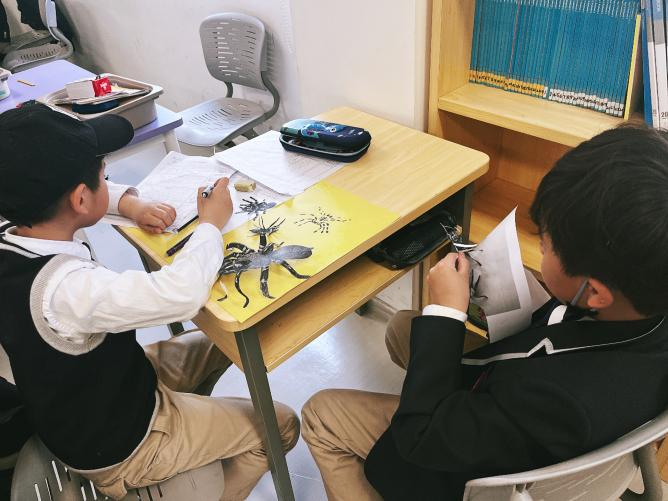
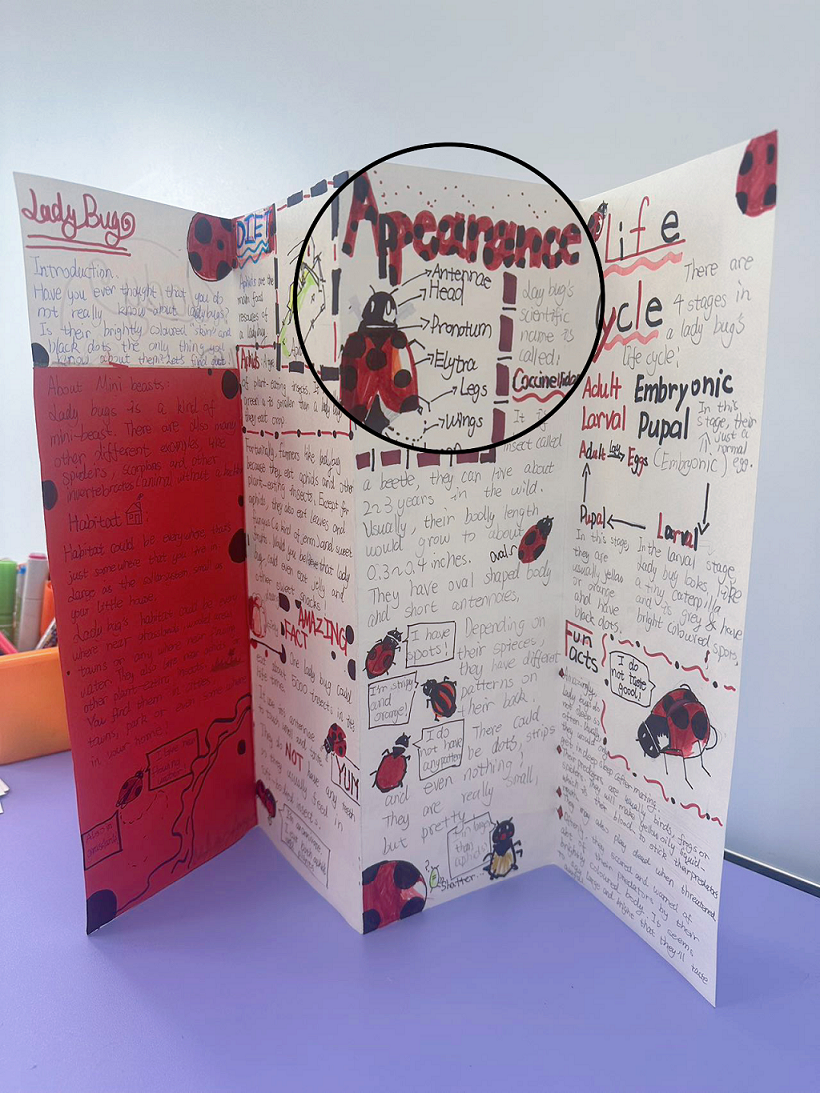
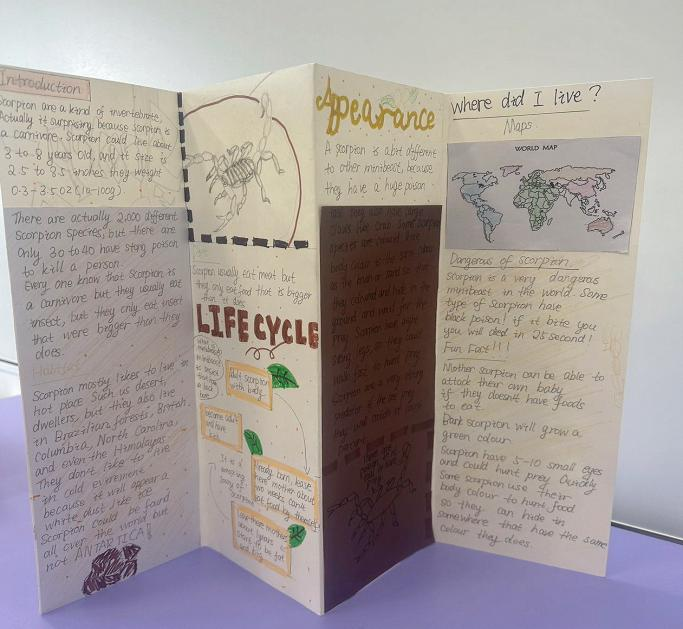
Here are a few examples of Year 5 students informative reports on the “creepy crawlies” that we share the World with!




 Home
Home  About Us
About Us 
 Admissions
Admissions  Curriculum
Curriculum  Pastoral
Pastoral  School Life
School Life  LMS
LMS  Contact Us
Contact Us 









 Home
Home  About Us
About Us  Admissions
Admissions  Curriculum
Curriculum  Pastoral
Pastoral  School Life
School Life  LMS
LMS  Contact Us
Contact Us 

